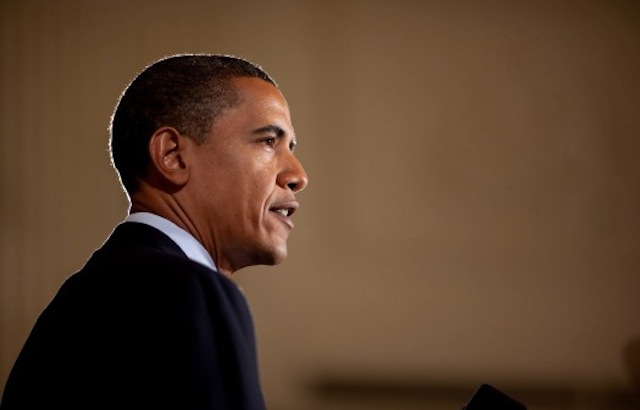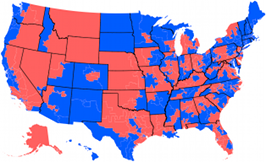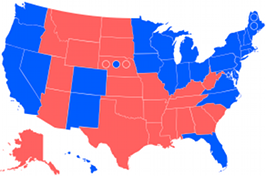Pew Research released a new poll of American politics and religion. The question on Barack Obama’s own religion will get all the attention, as it shows American belief that he is a Christian peaked before the 2008 election, and belief that he is a Muslim is peaking now.
But to me, the biggest news is at the bottom of the survey, where the national party identification figures are broken down, and how those compare with the last Republican wave in 1994.
First let’s look at All Registered Voters. In that group, Pew shows a swing from a 51 D-39 R split in 2008, to 47 D-43 R now. That’s a swing from D+12 to D+4, or 8 points for the Republicans. Even if we assume all of these voters are equally likely to vote in November, the Swingometer tells us conservatively that 8 point swing is enough to cut the Democrats’ majority in half. And as always, the Swingometer by design cannot take into account differences in recruitment and fundraising which can swing many districts beyond the national figure.
If Democrats are depressed in their turnout for any reason, as most polls this year suggest, this will get worse for Barack Obama and the Washington Democrats than that even. Reasons a voter may stay home from pulling the lever for the Democrat include that they feel it is a bad year for Democrats, or they feel Barack Obama has failed to live up to his promises to the “professional left,” or even they feel that Barack Obama has not governed as the centrist he was perceived to be. Regardless of the reason for the turnout depression though, that 8 point swing will be magnified by turnout differences a partisan ID poll will not show.
But where is this national swing coming from, beyond the projected turnout gap? Pew’s charts show that “White Mainline Protestants” have returned to a Republican tilt they lost from 2006-2009, not coincidentally the years Democrats did well. Further, the Republican bleeding of “Hispanic Catholics” has ended, Republicans have hit their highest level among religiously “Unaffiliated” Americans since 2002, and since President Obama took office Republicans have made startling gains among “Jewish” Americans, halving what was a 55 point advantage in 2008 for Democrats to 27 in 2010.
All in all, only the “Hispanic Catholics” category is not recreating the conditions of 1994 or better for Republicans, and the improvements from 1994 among the “Jewish” and “White Evangelical Protestants” may be enough to make up that gap. Pew buried the lede by focusing on the distraction of Barack Obama’s personal religion. It doesn’t matter where and how he prays if his party in Congress will be defeated soundly in November.



 House of Representatives Swingometer
House of Representatives Swingometer Electoral College Swingometer
Electoral College Swingometer
Comments
No Responses to “Republicans build a demographic majority for 2010”